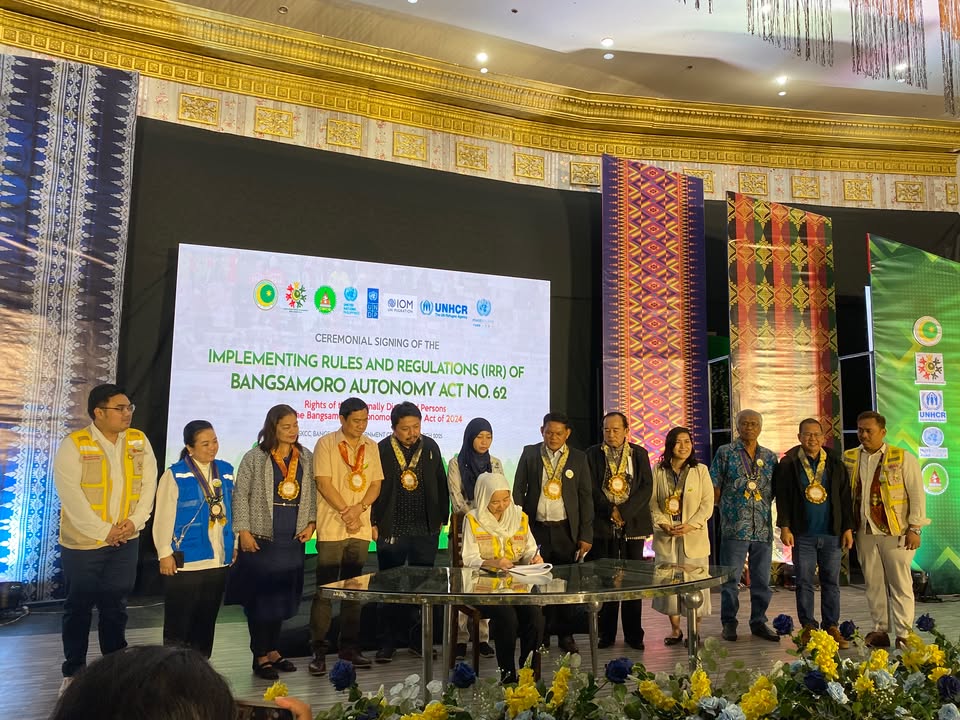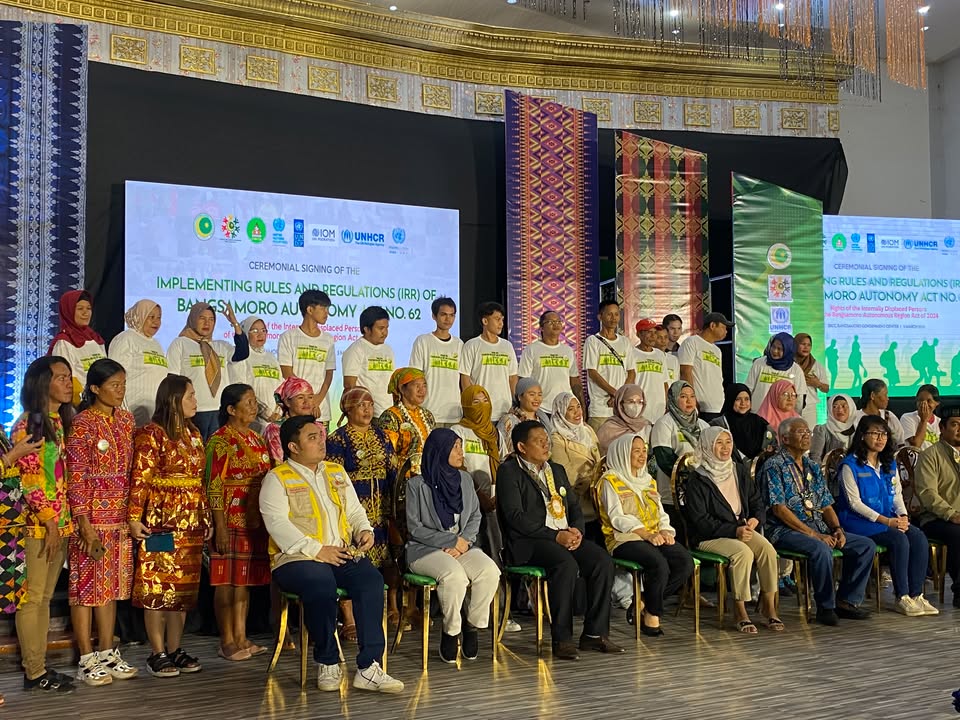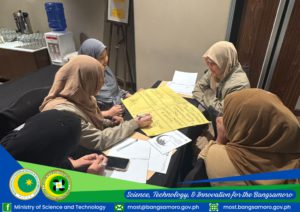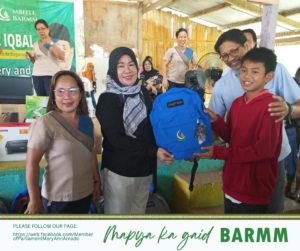
MSSD-BARMM, Partner Stakeholders ink BAA No. 62 Implementing Rules and Regulations of Rights of Internally Displaced Persons

COTABATO CITY (March 5, 2025) — The Ministry of Social Services and Development (MSSD) Minister Raissa H. Jajurie heralded a significant advancement in the Bangsamoro Government’s commitment to safeguarding the rights and dignity of internally displaced persons (IDPs) during the signing of the Implementing Rules and Regulations (IRR) for the Bangsamoro Autonomy Act (BAA) No. 62. This Act, known as the Rights of Internally Displaced Persons of the Bangsamoro Autonomous Region Act of 2024, aims to empower and protect IDPs on March 5, 2025, held at Shariff Kabunsuan Cultural Complex, this city.
Minister Jajurie emphasized that this law represents more than a mere legislative initiative; it is a promise of action for the displaced families who have faced adversity both within and beyond the Bangsamoro region. “We are paving the way to durable solutions for those who have long been affected by displacement, both within and outside the Bangsamoro region,” she stated.
Atty. Jajuire is also a BTA Parliament Deputy Floor Leader and the author of the IDP law. “Today marks a crucial step forward in fulfilling the Bangsamoro Government’s commitment to protecting the rights and dignity of displaced families across our region. This law is not just a promise on paper; it is a promise in action,” she said.
The Bangsamoro Internal Displacement Coordinating Council (BIDCC) and other dignitaries have also signed the BAA No. 62. Section 24 of the Bangsamoro Autonomy Act No. 62, emphasizes the role of the Bangsamoro Human Rights Commission (BHRC), which shall investigate all allegations of violations of human rights of the displaced population in the Bangsamoro Autonomous Region.
BARMM Chief Minister Ahod “Al Haj Murad” B. Ebrahim acknowledged the profound impact of displacement in the region’s history. He articulated the government’s goal of transitioning the narrative of displacement into one of resilience, stating, “Through this law, we institutionalize comprehensive protection—prevention of displacement, humanitarian assistance during displacement, and the pursuit of durable solutions to ensure that every displaced family can rebuild and reclaim their future.”
The implementation of this law is a collaborative effort, with local and international NGOs and United Nations agencies playing pivotal roles in its development. The United Nations High Commissioner for Refugees (UNHCR), in partnership with the Consortium of Bangsamoro Civil Society (CBCS), contributed significantly to the creation of the IRR as part of the Sustainable and Empowering Displacement Solutions for Peace (SEEDS for Peace) Joint Programme. This initiative also received support from the United Nations Development Programme (UNDP) and the International Organization for Migration (IOM).
Maria Ermina Valdeavilla-Gallardo, the Head of the National Office for UNHCR Philippines, underscored the adoption of the IRR of BAA No. 62 as a vital step toward enhancing the support framework for IDPs in the BARMM while serving as a model for national legislation currently under consideration by the national government. “The signing of the IRR is not the end, but the beginning of translating this law into meaningful action,” she asserted, reaffirming UNHCR Philippines’ commitment to working with the Bangsamoro Government.
As a pioneering piece of legislation in Southeast Asia, BAA No. 62 is designed to align with national, regional, and international legal frameworks, particularly the Guiding Principles on Internal Displacement. The Act lays a solid foundation for the protection of IDPs and delineates the collaborative responsibilities of BARMM ministries, local governments, and relevant agencies in delivering assistance and pursuing long-term solutions. The law took effect on December 4, 2024, marking a landmark achievement in the region’s governance of internally displaced individuals. (Tu Alid Alfonso, with report from USM BSIR OJT Students: Melody N. Flores, Bai Onamayda P. Dilanggalen, Amera M. Basalon, BMN/BangsamoroToday)

